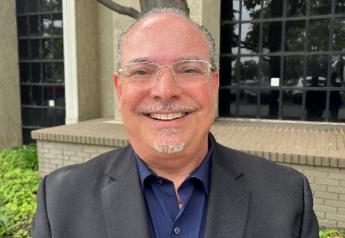The House passes BBB Act — Do the costs outweigh the benefits?
BBB House Vote 112221
On Friday, Nov. 19, 2021 The U.S. House of Representatives passed President Joe Biden’s ‘Build Back Better’ plan, also known as the reconciliation package. This vote came after months of debate and countless rewrites to the plan.
“The Bipartisan Infrastructure Deal is now law and we will reap its benefits of new job and economic growth and the ability to compete around the world. The American Rescue Plan continues to get our economy back on track as we recover from the pandemic. Together with the Build Back Better bill, we have a truly transformational opportunity to rebuild the physical, natural, and human infrastructure of our nation,” said Agriculture Secretary Tom Vilsack in a release.
The $1.7 trillion plan invests more than $90 billion in climate-smart agriculture, forestry, research, rural development, child nutrition and debt relief, according to the U.S. Senate Committee on Agriculture, Nutrition and Forestry.
- Climate-Smart Agriculture: $27 billion to give farmers and ranchers the tools they’ve asked for to keep leading on climate. It’s the biggest investment in conservation since the Dust Bowl —reaching as many as 240,000 farms and 130 million acres of cropland per year;
- Forestry: $27 billion to restore forests, fight wildfires and sequester carbon in trees – the biggest ever investment in forest restoration, wildfire prevention, and climate-smart forestry;
- Research: $2 billion for agricultural climate research and agricultural research facilities;
- Rural Development and Energy: $18.3 billion to invest in rural prosperity and help rural communities transition to cleaner energy;
- Child Nutrition: $10 billion to invest in child nutrition programs to feed millions of additional kids during the school year and over the summer; and,
- Debt Relief: $6 billion in additional funding to expand support to economically distressed borrowers and underserved farmers, ranchers and forest landowners in high-poverty areas.
“The Build Back Better initiative is a historic step forward. It's going to enable us, once passed and signed by the President, to remain competitive and resilient in a global economy into the future. While at the same time helping American families cut costs in areas of health care, education, housing, and increase their ability to cope with any increased costs,” Vilsack said in a press briefing on Nov. 19 following the house approval vote.
Vilsack said in the briefing that the plan won’t prevent obstacles to farmers who want to pass on their operation to the next generation, noting that the estate tax code stepped up-basis would not be eliminated. He said corporations and rich individuals would pay more.
“Our corporations have made more than a billion dollars and didn't pay any tax and individuals who make more than $25 million a year; they are going to pay a little extra tax, and I think they probably can afford a little extra." Continue reading.
However, some organizations stand opposed to the legislation. The American Farm Bureau Federation sent a letter to the U.S. House of Representatives Tuesday, Nov. 16 stating, “After watching months of contentious, partisan debate surrounding the Build Back Better Act, AFBF stands in opposition to the legislation. While some elements of the reconciliation package would benefit agriculture, the massive amount of spending and tax increases required to pay for the plan outweigh the gains we would see in rural America.”
In the Nov. 19 press conference Vilsack replied, “with respect to the Farm Bureau… I just don't think that's that aligns with the terms and conditions of this bill. The initial proposal contained an elimination of stepped-up basis. And notwithstanding the fact that there was a provision in the initial proposal that would have exempted 98% of the farms in the country today from having to be concerned about this. There was still I think a level of concern that folks had. That provision is not in this bill.”
“I don't see anything in this bill that necessarily compromises the ability of family farms to stay in business,” Vilsack said.







